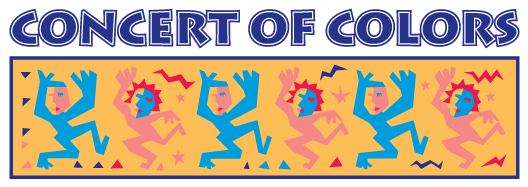The Concert of Colors was established by Ismael Ahmed – the former head of the human services organization ACCESS – and New Detroit in 1993 as a one-day event at Chene Park on Detroit’s riverfront. The inaugural event drew a modest crowd to Chene Park, but by 1999, some 10,000 music lovers were coming out each year. The festival expanded to three days in 2001, when it was part of the official festivities for Detroit’s 300th birthday, drawing an audience of 100,000. In 2019, the concert expanded to nine days.
Back in 2005, the festival’s opening night performance was relocated to historic Orchestra Hall at the Max M. & Marjorie S. Fisher Music Center in Detroit, the home of the Detroit Symphony Orchestra (DSO). The DSO became a full partner in 2006 as the entire festival relocated to the Max M. & Marjorie S. Fisher Music Center, with two indoor stages and one outdoor stage. In 2007, the festival grew to encompass four days of free live music. A major new development took place in 2008 when Don Was, über producer and the President of Blue note records, joined the Concert of Colors working group to curate an produce The Don Was All Star Revue that has become the top yearly showcase of Motor City music in the country.
In 2010, the Detroit Institute of Arts joined this remarkable collaborative effort, and as of 2019 is serving as the MainStage for Concert of Colors. In 2011, the number of festival venues expanded to four, with the addition of the Scarab Club and a new presenting partner, the Charles H. Wright Museum of African American History which also has expanded its role.
In recent years, attendance at the Concert of Colors has been more than 30,000.
World music, including the indigenous music of the Motor City, is the major focus of the Concert of Colors, but not the only focus. The festival also offers ethnic food, merchandise vendors, movies, poetry, children’s activities and much more. In 2014, The Arab American National Museum restored the annual Forum on Community, Culture and Race that began in 2006. The Forum is a conference featuring presentations and discussion among artists, people connected to cultural institutions and community leaders to examine the role of arts and culture in overcoming racial and ethnic barriers.

2023

2022
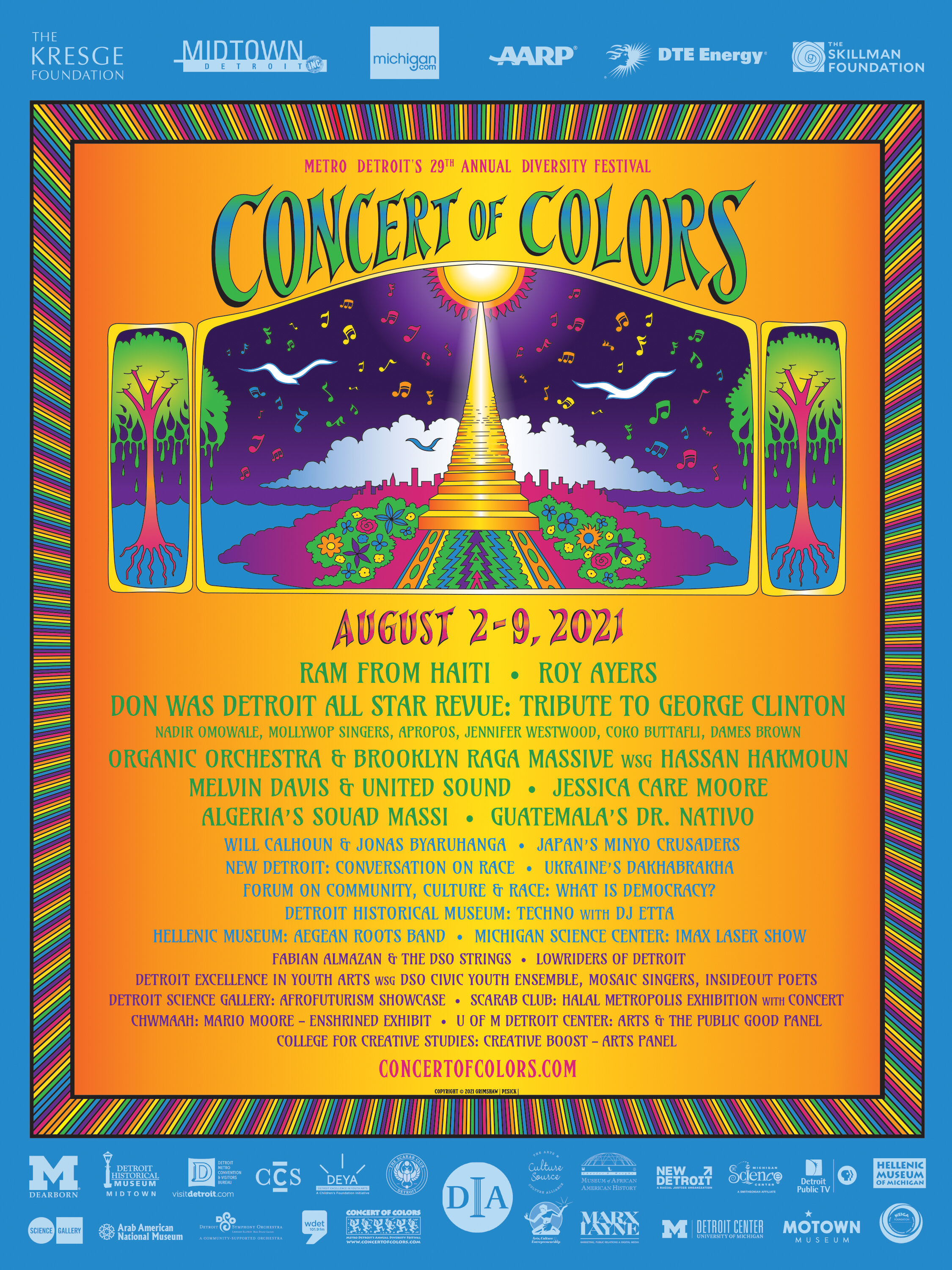
2021

2020

2018

2017
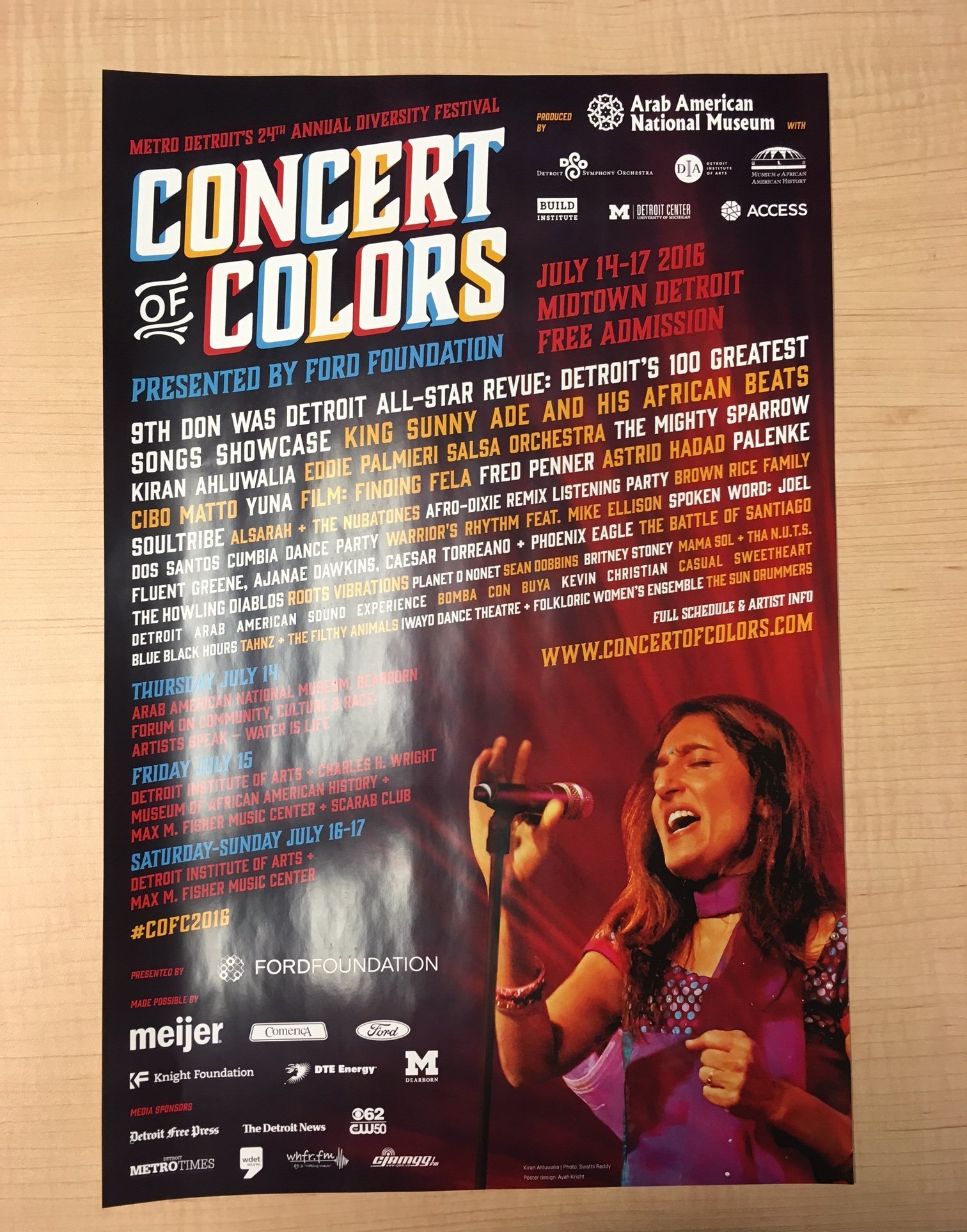
2016

2015

2014

2013
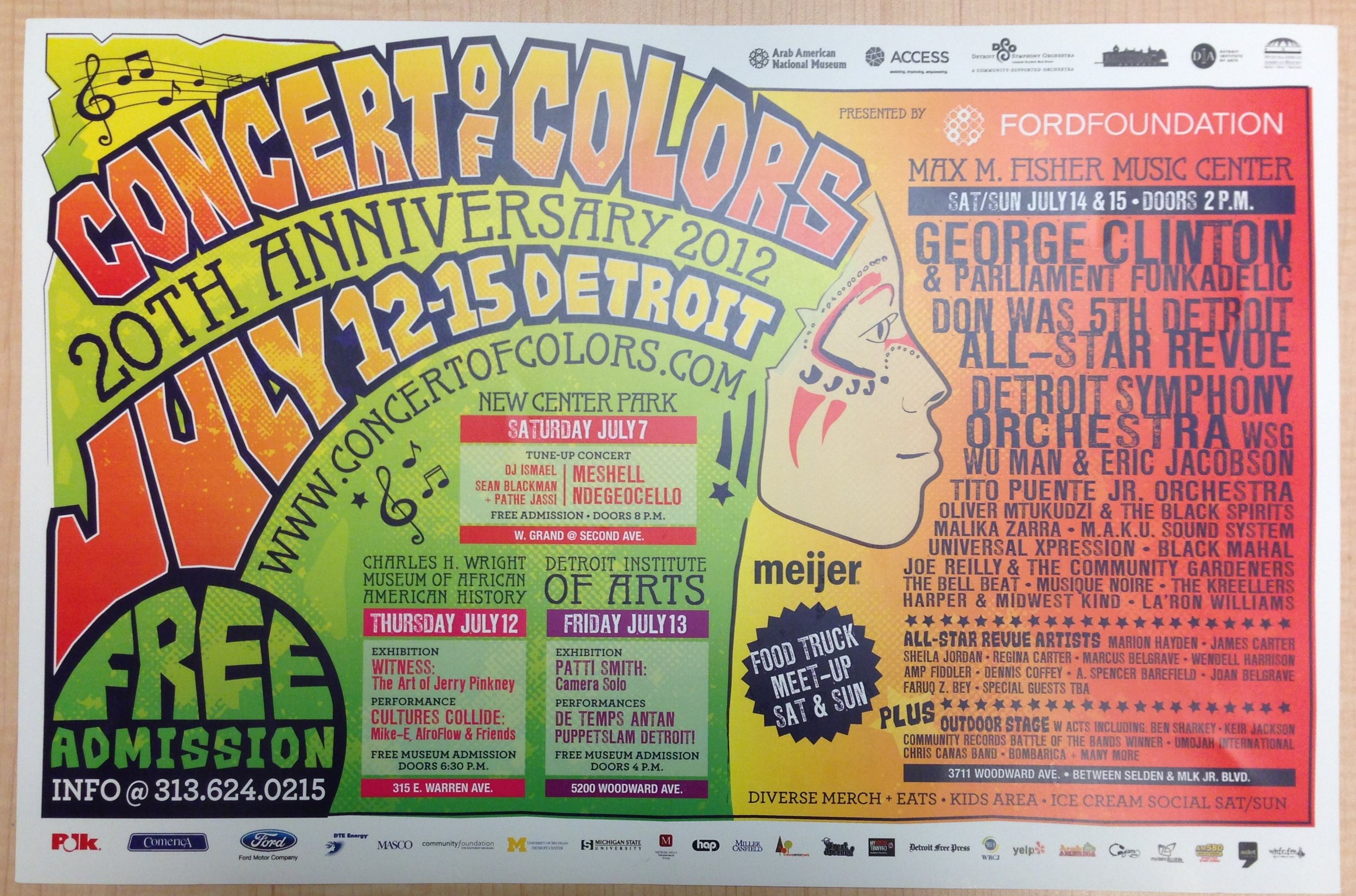
2012
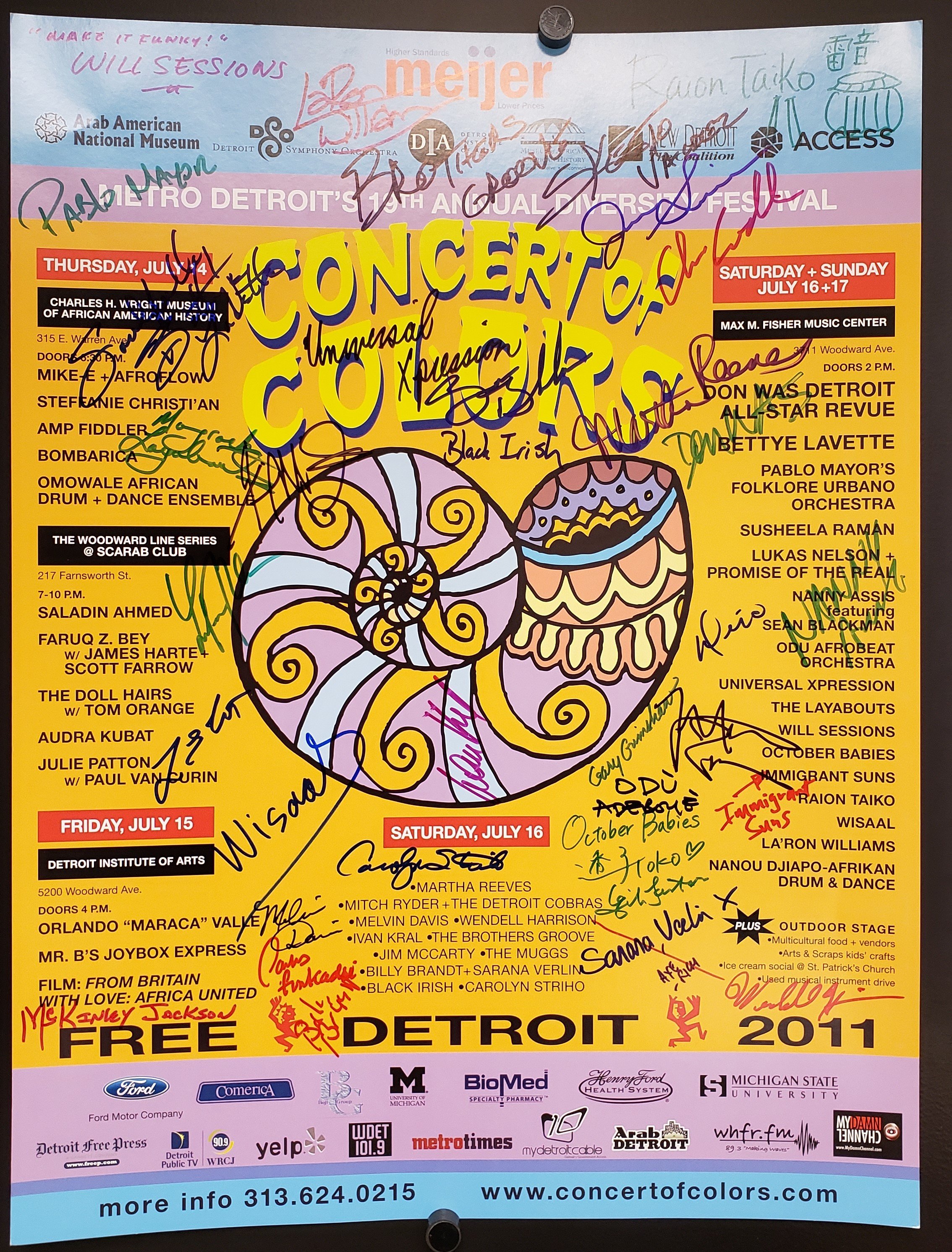
2011

2010

2009

2008
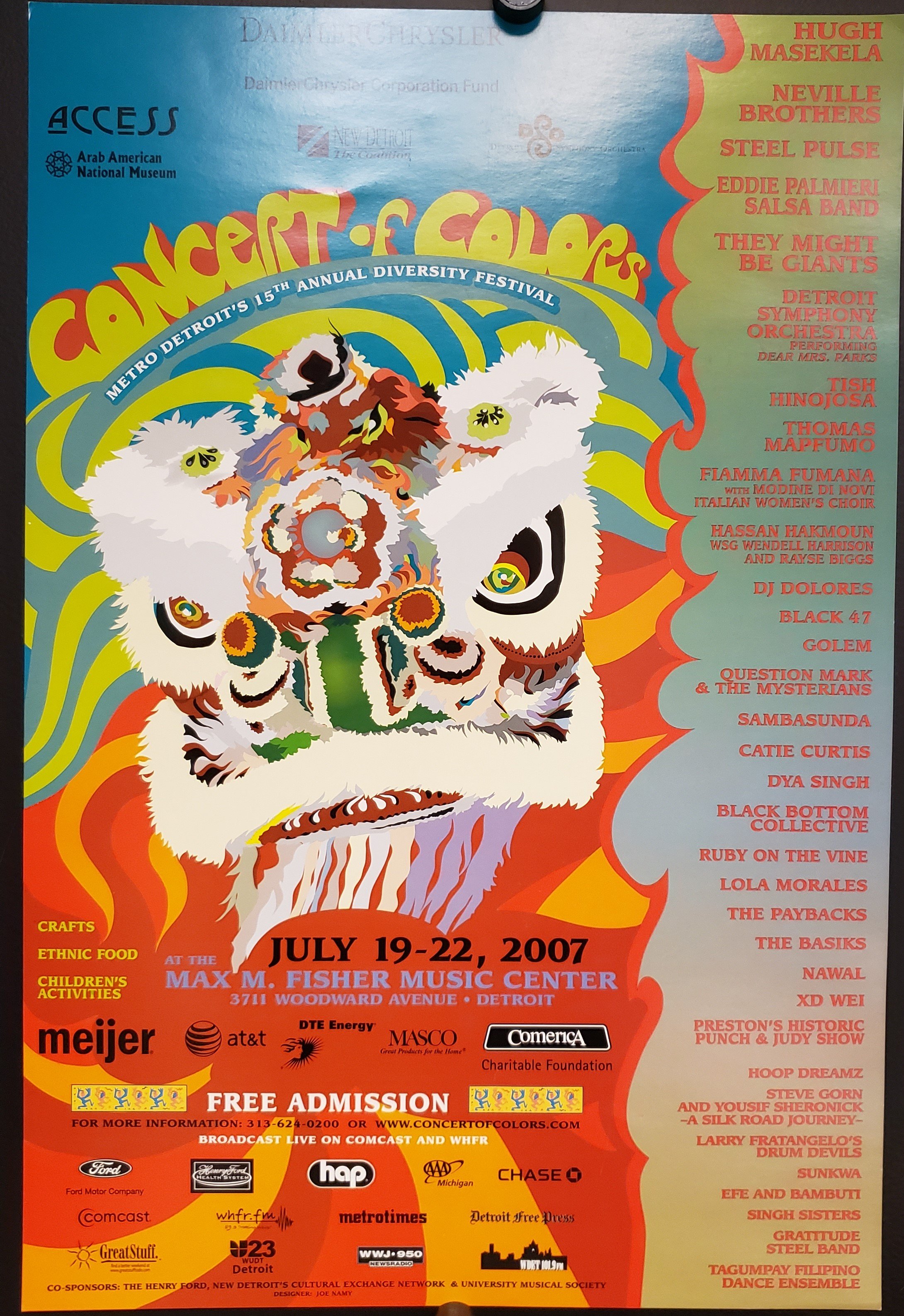
2007

2006
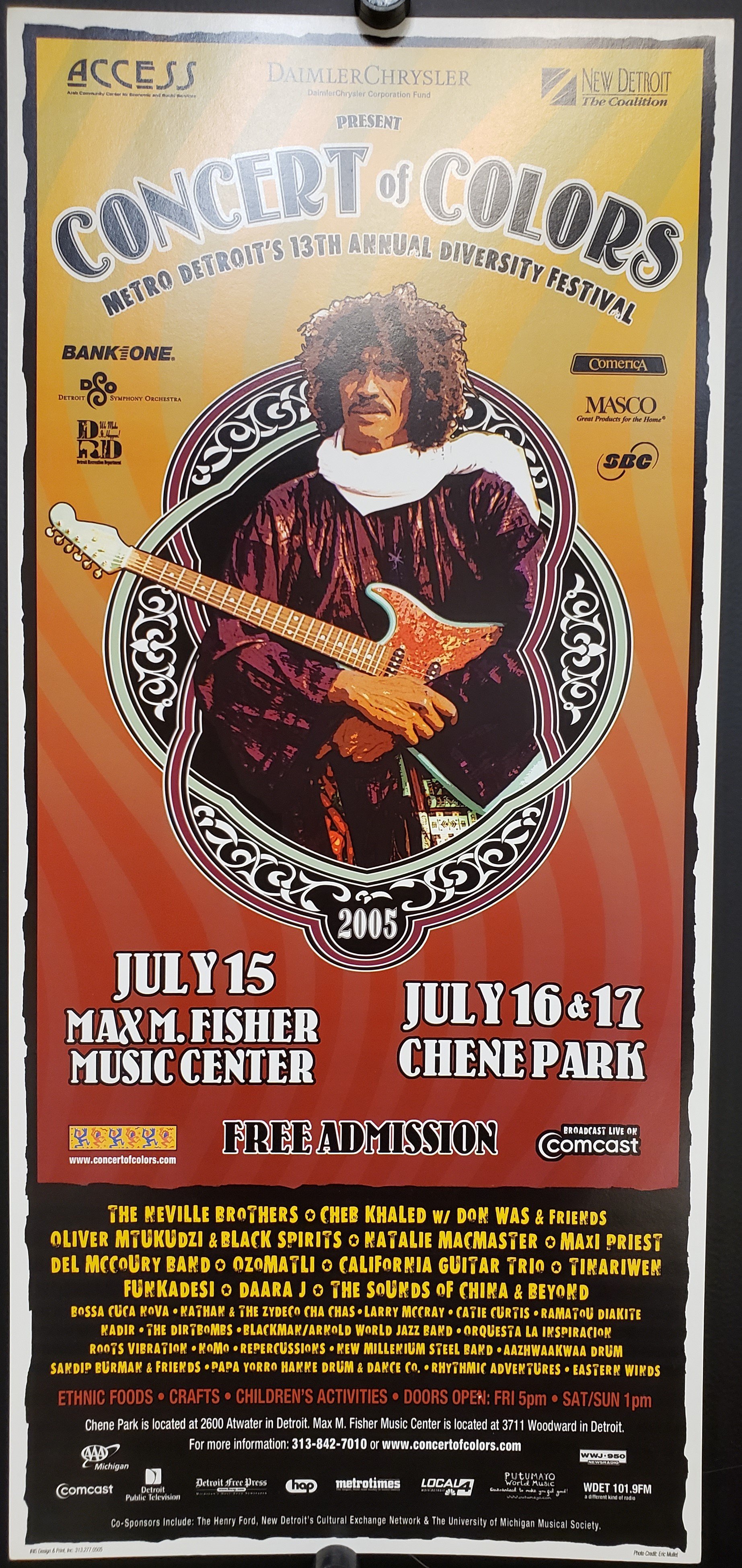
2005
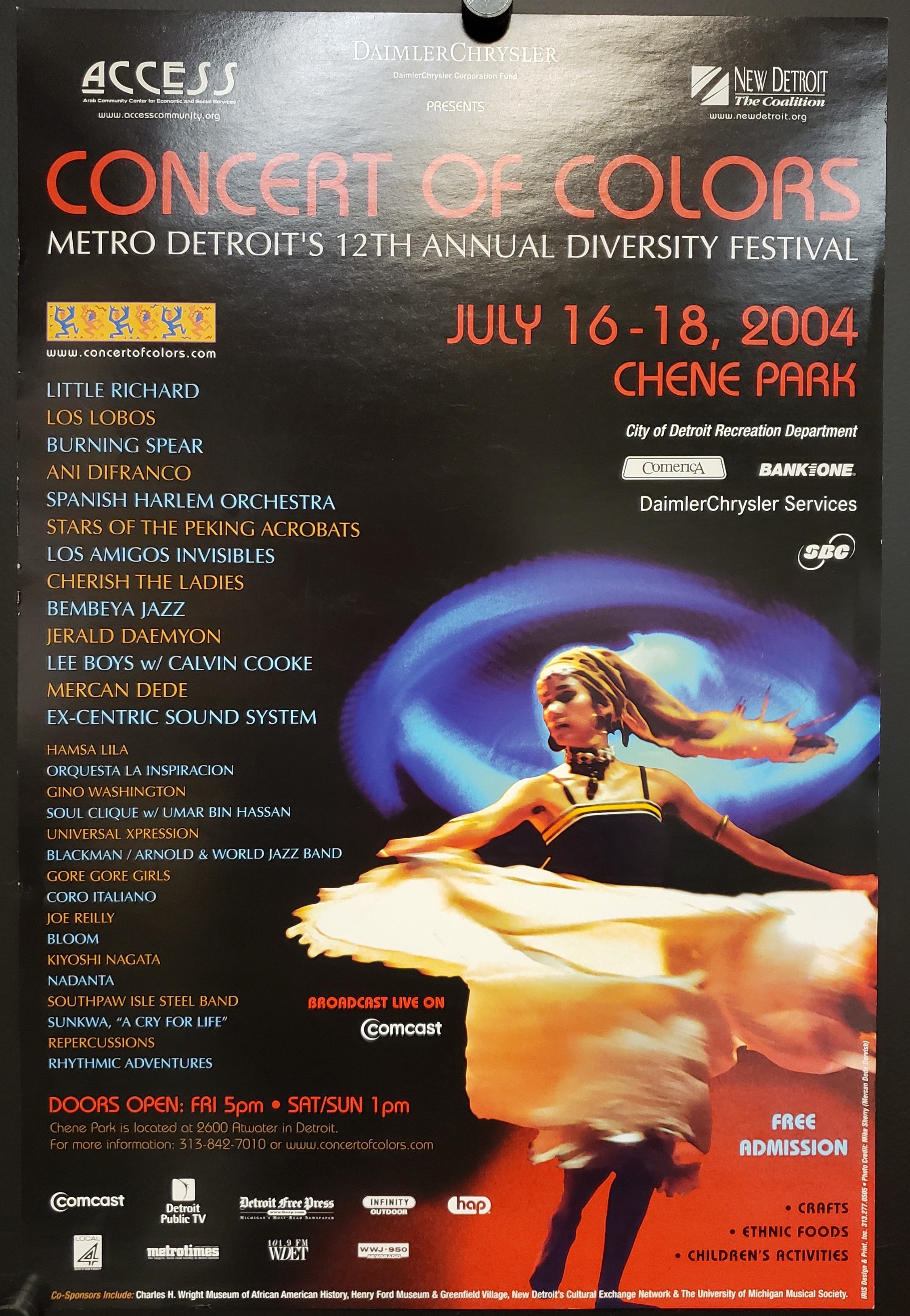
2004

2003

2002

2001
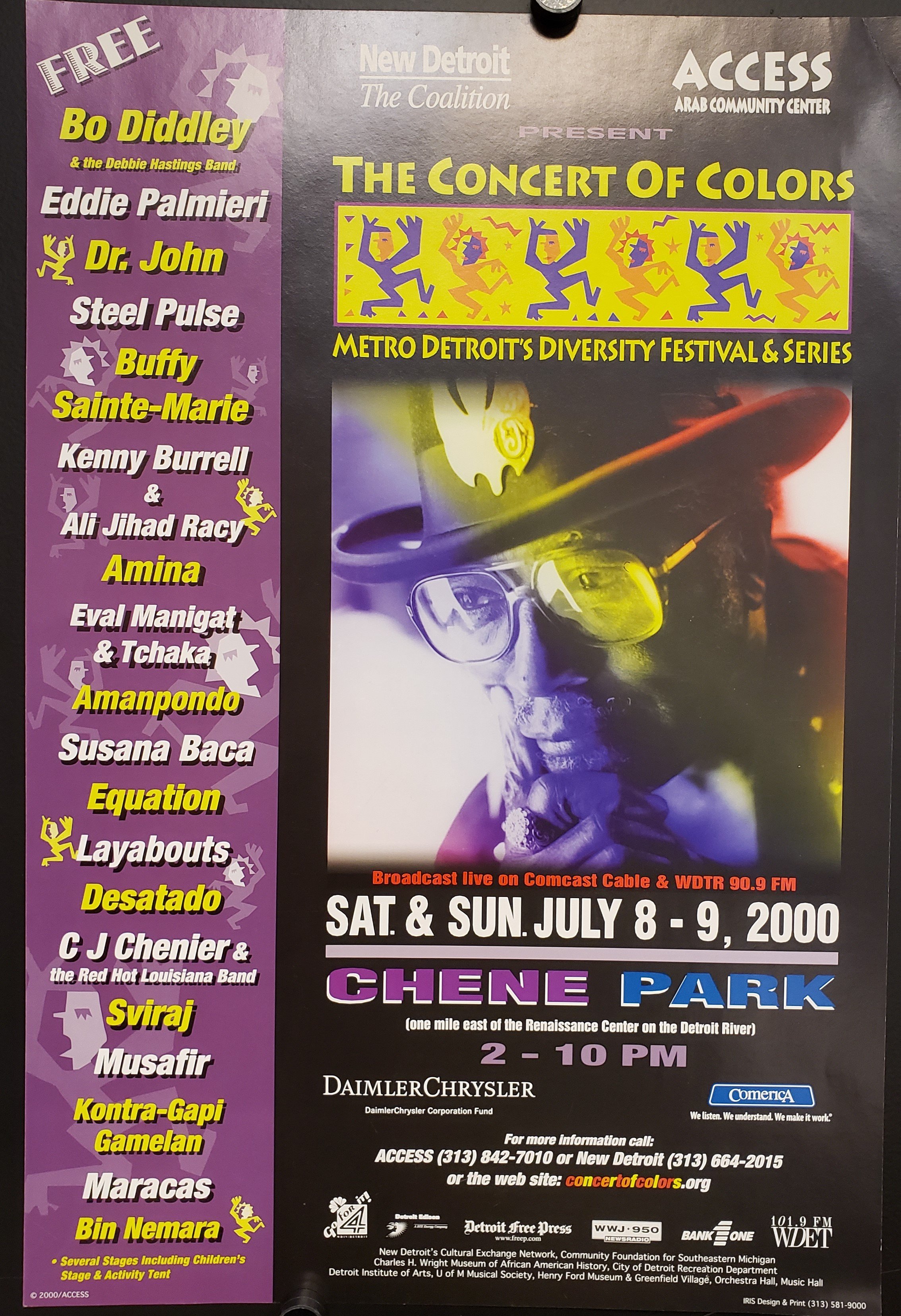
2000

1999
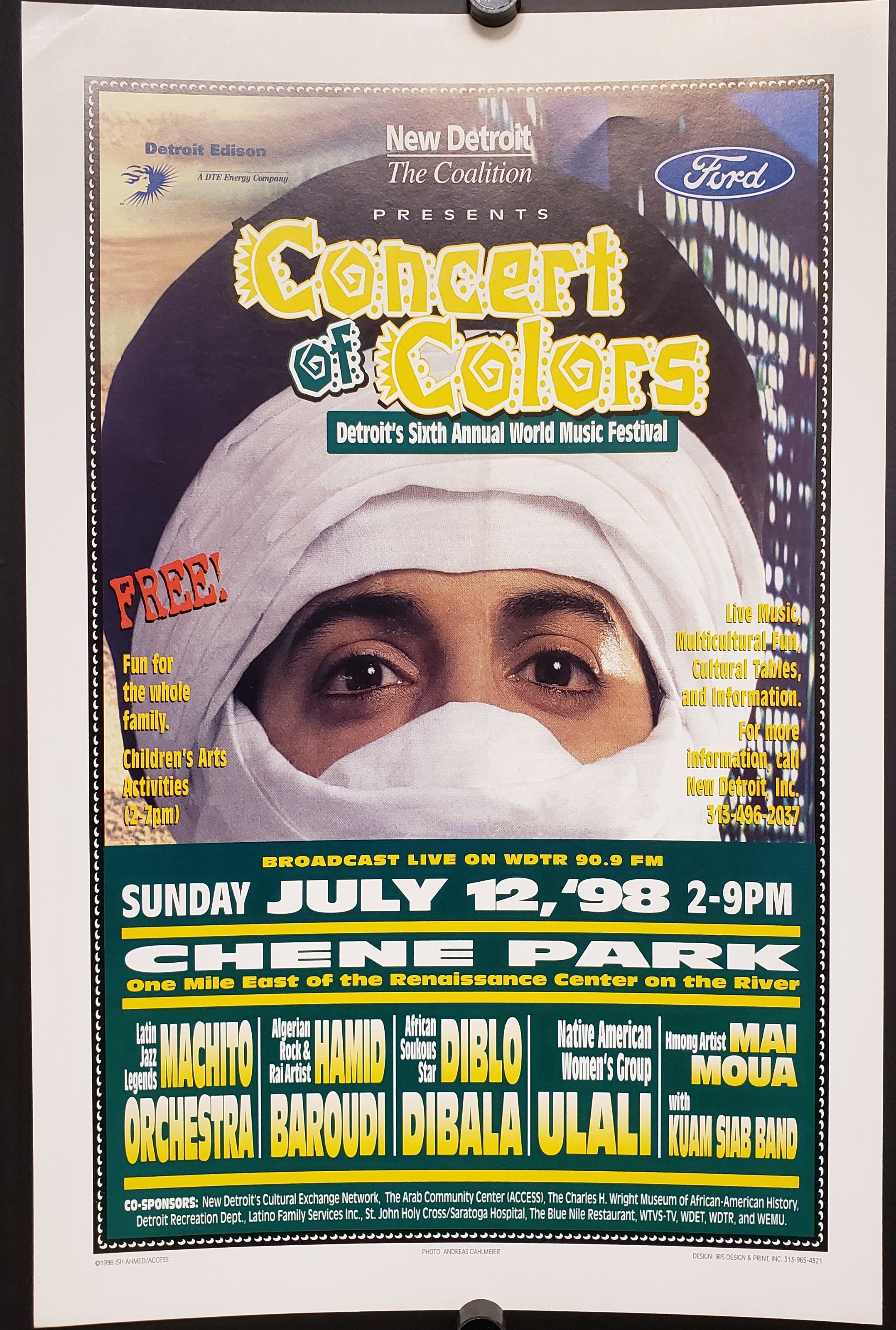
1998

1997
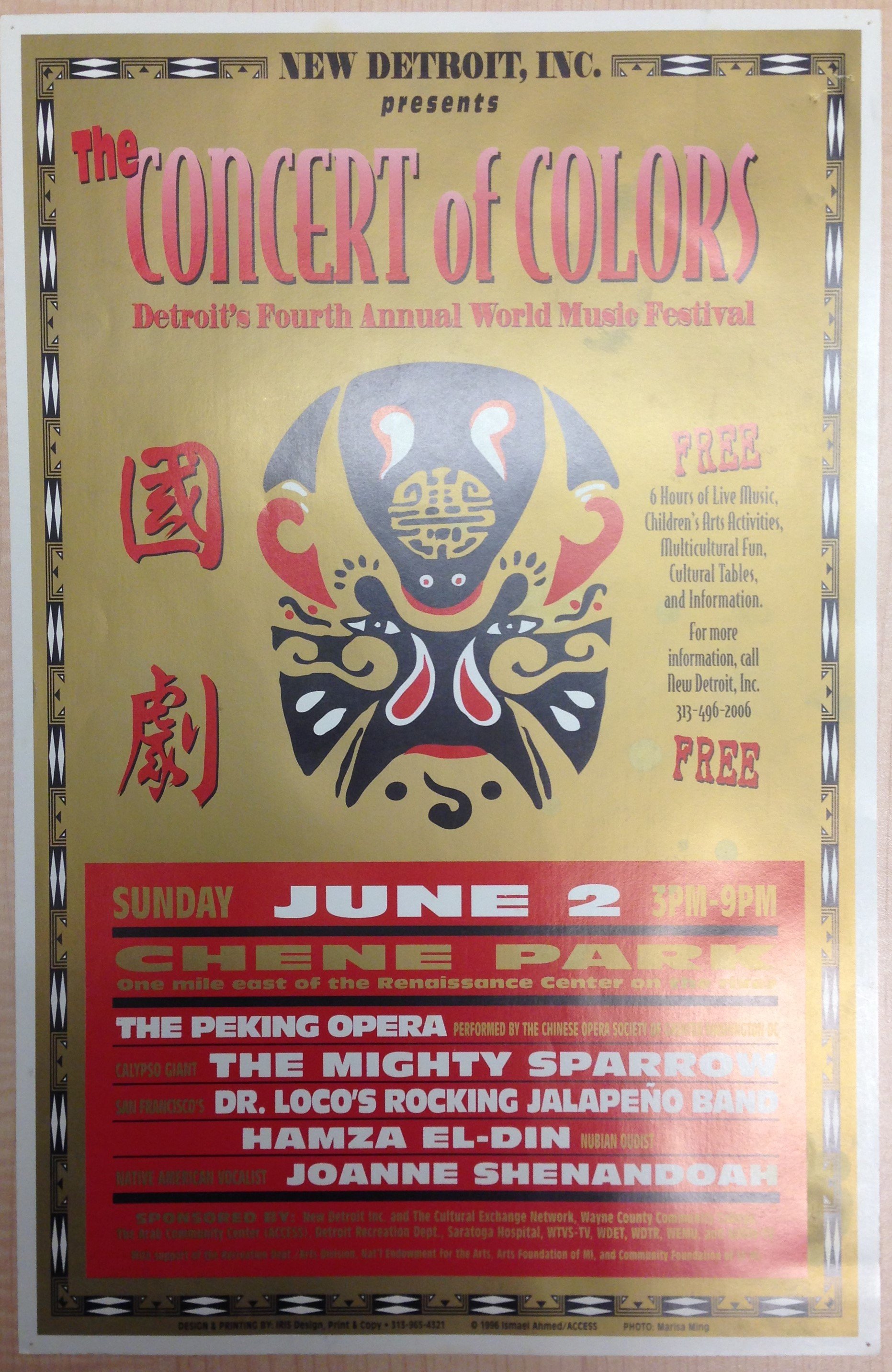
1996
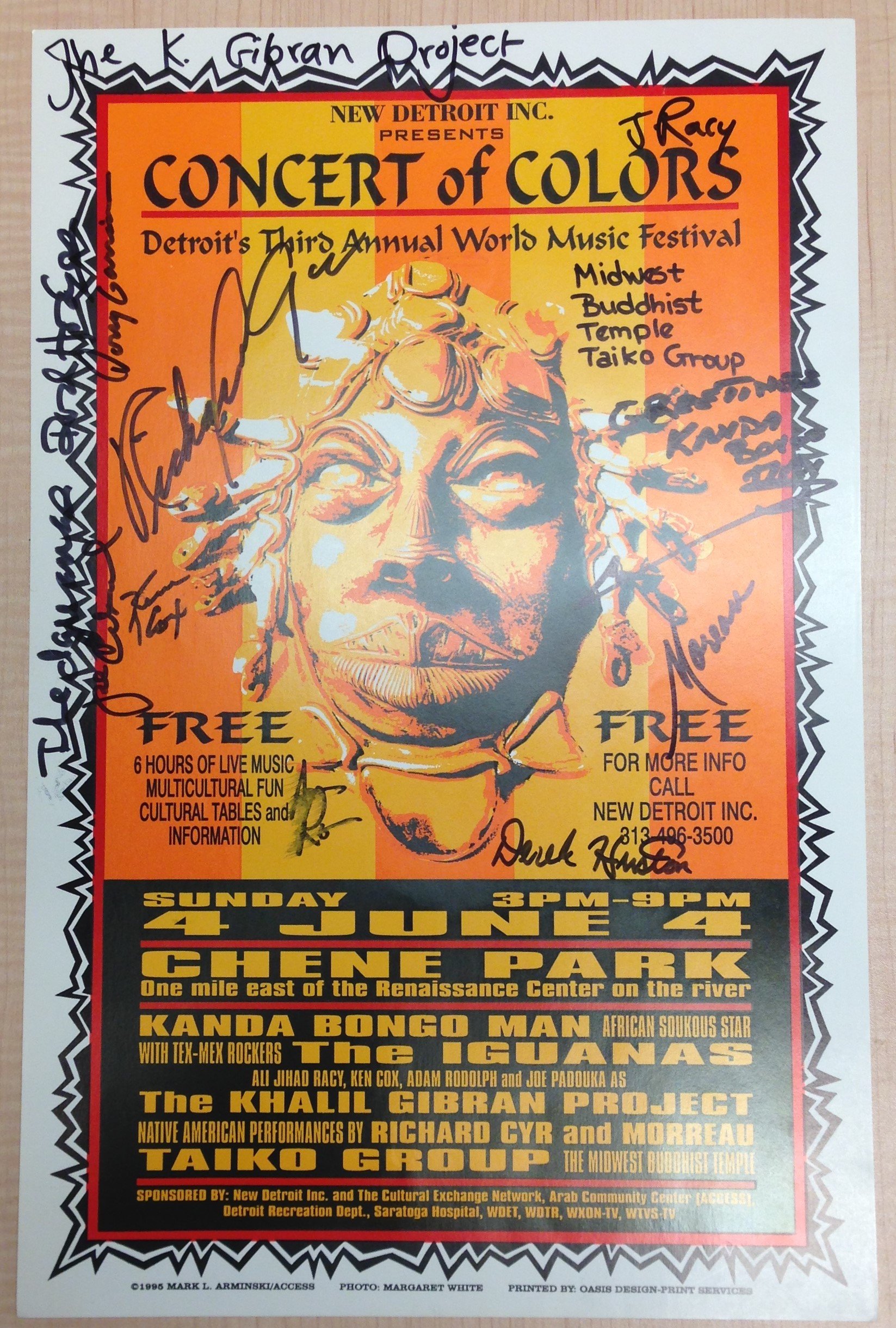
1995

1994
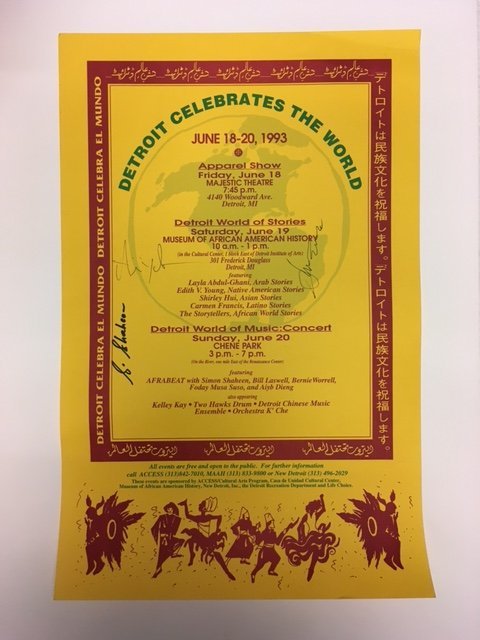
1993

1988
